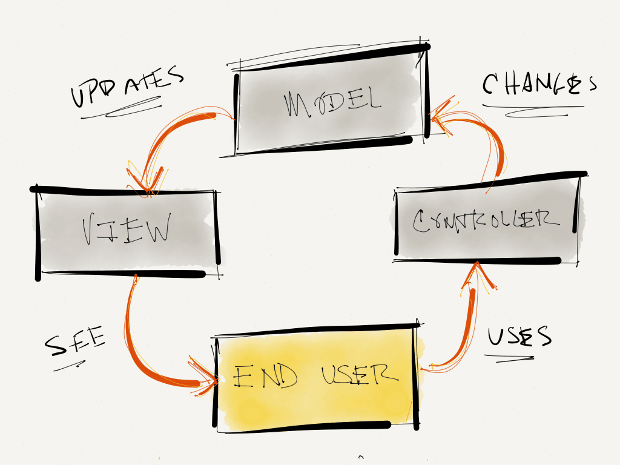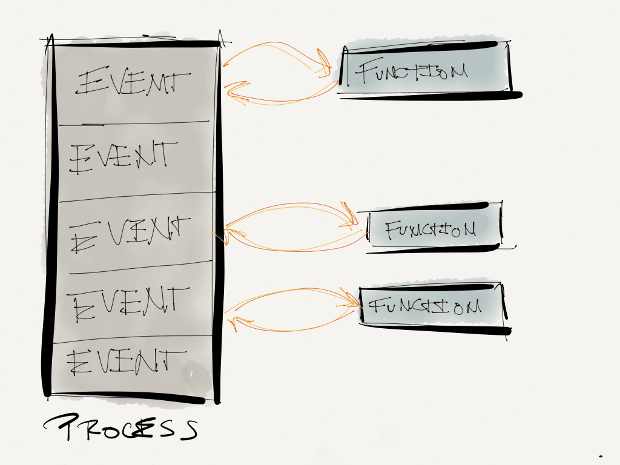During the initial requirement stages of a website design and implementation project, one of the first questions that comes up is the future website’s platform. And out of the most asked questions related to the platform, the one related to picking WordPress or Microsoft based products has to be the winner!
If you try and search for some information on this topic, you’ll find that there seems to be a very opinionated discussion of what is better, what has better performance, what has better expert support, methodologies and the debates go on and on…
[p1vc-video]
In reality, having implemented small, medium-sized and large websites using both WordPress and Microsoft based solutions, we feel that the answer to this question never ends up being “black and white”. There are so many contributing factors including the client’s preference, client’s existing infrastructure, in-house development knowledge levels, expected cost of the project, expectation of maintenance contracts after the implementation and many many more.
So our approach is to always analyze these factors before we even look at choosing the right technology path that is completely unique to client’s current set of requirements. However, just to illustrate how divided some of the opinions are, we found a couple of articles that argue for one or another solution.
In this article, Kasia Mikoluk, argues in favour of PHP.
Welcome to a battle of two heavyweights. In one corner, we have PHP, the most popular scripting language on the internet with millions of dedicated developers and an even larger legion of fans. In the other corner, we have a ASP.net, a platform backed by Microsoft itself that can use any .NET supported language.
So which is better? In this article, we’ll compare PHP and ASP.net and tell you which platform is better suited for your project. For a more detailed overview of PHP, check out this course on PHP for absolute beginners.
PHP Overview
PHP stands for Hypertext Preprocessor. PHP originated as a scripting tool that has quickly taken over the internet thanks to its easy learning curve and large developer community. According to one estimate, PHP is installed on over 244 million websites with server support from virtually all major hosts. PHP is also free and boasts a number of frameworks to simplify web development.
Some of the major websites written in PHP include WordPress and Facebook.
ASP.NET Overview
ASP.NET was developed by Microsoft to provide developers with an easy scripting tool for building web pages and web applications. It is a successor to ASP (Active Server Pages), another platform pioneered by Microsoft in the mid-90s. You can code ASP.NET using any .NET supported language, which made it especially popular among .NET developers. Microsoft’s early domination of the web browser market with IE was also responsible for increasing the popularity of ASP.NET.
Some of the major websites that use ASP.NET are PlentyOfFish.com and MySpace.
The question now is: what language should you choose if you are starting out as a programmer?
Costs
This is a no-brainer – PHP is completely free, while ASP.NET is a Microsoft product. This means there are certain costs associated with ASP.NET development, namely:
Buying Windows, since ASP.NET development is possible only on a Windows machine. This shouldn’t be a problem for most people. If you use a Mac or Linux, you can use the Mono project to use ASP.NET on your machine.
ASP.NET requires Windows hosting. Until a few years ago, Windows hosting used to be significantly more expensive than Linux web hosting. This is hardly true today; you can easily find Windows hosts for almost the same price as Linux web hosts.
A development environment. The most popular IDE (Integrated Development Environment) for ASP.NET is Visual Studio. Microsoft also offers a free version of VS called VS Express.
As a beginner, you won’t have to specifically shell out extra for using ASP.NET, but once you upgrade to the professional stage, you will need something like Visual Studio, which can set you back by a few hundred dollars.
PHP, on the other hand, is entirely free, runs on Linux web hosting, can be used on Windows, Mac or Linux, and is supported by a number of free and paid IDEs.
Winner: PHP
Scalability
Both ASP.NET and PHP are highly scalable. Consider that Facebook, the second most heavily trafficked website in the world, was originally built in PHP, while MySpace, the website Facebook dethroned as the world’s favorite social network, was built in ASP.NET. This illustrates that both ASP.Net and PHP are highly scalable, as long as the programmer knows how to scale their application.
Winner: Tie
Performance
Performance for most web applications is a function of the interaction between the script, the database and the server. Most web applications written in PHP follow the LAMP stack – Linux (OS), Apache (server), MySQL (database) and PHP (scripting language). The LAMP stack is extremely popular for web development, and thus, has been optimized extensively for improved performance.
The database used most often with ASP.NET is MSSQL (Microsoft SQL Server), although you can also use MySQL with it. The performance different between a ASP.NET+MSSQL stack and a PHP+MySQL stack are very small with PHP+MySQL edging out ASP.NET.
Another factor that affects performance is the OS and file system used on the server. Most tests indicate that Linux and ext4 file system have better I/O performance than Windows and the NTFS file system. Thus, there’s a good chance a PHP application running on a Linux web host will slightly outperform a similar ASP.NET application running on a Windows host.
Winner: PHP
Support
PHP is free and among the most popular scripting languages online. There’s a huge open source developer community that regularly contributes to PHP development. The open-source community also tends to be very helpful, which is a big bonus for beginners.
ASP.NET, on the other hand, is a Microsoft property. While you’ll find plenty of developer boards run by ASP.NET enthusiasts, the scene is nowhere near as vibrant as PHP’s.
Winner: PHP
Availability of Tools and Editors
Most PHP developers prefer using text editors like VIM and Notepad++ instead of a full-fledged IDE. If you did want to use an IDE, however, you’ll find solid support for PHP in free editors like Eclipse.
ASP.NET is also supported by most IDEs but is mostly used with Microsoft Visual Studio. Microsoft VS is one of the most powerful, feature-rich and flexible IDEs around, even though it is not free. Thus, if you’re willing to shell out the cash, you’ll find that no PHP editor/IDE comes even close to Visual Studio.
Winner: Tie
Using Visual Studio? This course on C# with Visual Studio will help you get started.
Ease of Learning
PHP wins this one, hands down. ASP.NET is usually written in C# (pronounced C ‘Sharp’). C# is built on C which can be difficult to learn for most beginners. Its syntax is complicated and difficult to read, even for experienced programmers. People new to programming will find ASP.NET hard to pick up.
PHP, on the other hand, is very easy to pick up (so much so that most seasoned developers consider PHP coders as ‘newbies’). You can learn a few simple lines of code and start tinkering with WordPress themes almost right away.
Winner: PHP
Language Popularity
According to the TIOBE Language Index, PHP ranks as the 6th most popular language online. ASP.NET, on the other hand, doesn’t even show-up in the top 20.
Winner: PHP
Conclusion
Unless you are already familiar with the .NET framework or want to stick to Microsoft technologies, there is no discernible need to use ASP.NET over PHP. PHP can do everything that ASP.NET can, and it can do it for free.

And in this article, Jeremy Frederick looks at the issue from a different angle.
I have been dealing with the PHP vs ASP.NET comparisons for the past few years and have gotten frustrated on more than one occasion with either clients or other software engineers arguing one side or the other without knowing some basic facts. Here’s my 2 cents on the debate.
First off, I think it is very important to you as a reader to understand my background. 8 years of my career was dedicated to game development for the Xbox and PS3. Games for these consoles are programmed in C++ and using Visual Studio. This is important because someone with that background is going to gravitate to ASP.NET before PHP.
The last 3 years I have been working on a number of different web projects and apps. This includes most of them built with ASP.NET. However, I worked on one large PHP project where I was the lead and primary engineer and several WordPress websites with custom themes. During that time, I built an entire RESTful API using Laravel that I continue to support to this day.
I am fully aware what you are thinking right now. Just because I’ve done ONE PHP big project, doesn’t make me an expert. You are correct, I am not a PHP expert. However, the arguments I make in this post would not change with experience level.
For the record, I am NOT pro ASP.NET or pro PHP. There are some situations where PHP is the best tool for the job, and there are other cases where ASP.NET is the best. I have actually fought for the use of PHP in a lot of projects.
THIS POST IS BIAS
You can read so many articles that give a fair shake down of PHP and ASP.NET. This post isn’t meant to do that. This post is to point out what PHP enthusiast are conveniently leaving out of their posts on why PHP is better. In my opinion these are pretty crucial oversights!
Apples to Oranges
In order to compare 2 things they need to be similar. Most people (even so-called experts) don’t understand that comparing PHP to ASP.NET is not apples to apples. PHP is a programming language. ASP.NET is NOT a programming language. The language used for ASP.NET is generally C# (VB.NET can also be used, but rarely ever is).
Please make sure you understand that previous paragraph! Let it settle and be processed. If you read any other articles comparing PHP to ASP.NET or WebAPI it is probably written by someone who doesn’t understand both technologies. PHP is a programming language, ASP.NET is a web framework.
PHP vs C#
So let’s compare an apple to an apple, PHP vs C#. Here is what Google gives as a definition to each:
C# – An object-oriented programming language in development from Microsoft, which is intended to combine the computing power of C++ with the programming ease of Visual Basic.
PHP – PHP is a server-side scripting language designed for web development but also used as a general-purpose programming language.
Already Google is skewing reality. C# is more widely used in NON-web applications than PHP is used as a general purpose programming language. How many people can say they’ve used PHP for a non-web application? C# is used for Windows phone apps, tools, and even cross platform mobile frameworks (MONO).
One thing that Google does get right is saying C# is an object-oriented programming language where PHP is NOT. No, it didn’t just miss that in the definition. PHP is NOT an object-oriented programming language. You can use it to mimic object-oriented practices (as you can any language) but it is not ingrained into the language itself as C# is.
Language Performance
As someone who has worked in games I understand the importance of performance. A lot of comparisons that are made conclude that PHP is faster at the core level. I’ll give that one to PHP. However, any engineer will tell you that modern hardware is so fast anyways that the core language speed really isn’t that relevant anymore. If it was relevant, everyone would be programming in ASSEMBLY which is a low-level language that can talk directly with the hardware. The reason no one does is because it takes many lines of codes to do the most basic operations and building an app with ASSEMBLY would take years to complete.
Since newer faster hardware has been developed new languages have been developed to take advantage of them, including C#. C# was built to make it easier for engineers to build apps quicker at the expense of a loss in overall performance (again, on modern hardware this is negligible).
I say all that to state that the performance of the language itself really isn’t what makes a program run faster or slower. Instead, it is how the code is written and architecture that determines how well it will perform.
In my experience, a lot of performance can be gained by using parallel processing (aka threading). Parallel processing allows multiple chunks of code to run at the same time in parallel. PHP does NOT support threading. C# not only supports it but makes it so simple that in most cases it only requires you to add the keyword async/await to a function (**if you’re using an SDK or existing code that was built with async in mind).
There are a number of other reasons why C# is better than PHP, but in my opinion the lack of threading support is the only argument needed.
The Real Comparison
As I said at the beginning of this post, we need to be comparing apples to apples. So what is the apple to ASP.NET MVC and WebAPI? Well, there are a lot of apples out there. These are generally called frameworks and you can see a lot of them by just Googling ‘PHP frameworks’.
I only have experience with the Laravel framework, so I can only provide comments about that one. I will say that the Laravel framework is an amazing framework and does a lot that the ASP.NET frameworks don’t’ do out of the box. The engineers that built Laravel have a lot of experience and put a lot of thought behind their framework, merging be best of the best from other PHP frameworks and even ASP.NET frameworks.
If you’re a big supporter of PHP, go back and re-read that paragraph over and over so you feel better about this post. Just to re-iterate, the Laravel framework (built with PHP) has more features out of the box than ASP.NET MVC or WebAPI. I am a huge fan of Laravel. The only thing I don’t like about Laravel is that I am limited by what PHP can do.
Laravel (and PHP) is great for specific scenarios. But when it comes to big projects and enterprise level software, you are going to hit your limits with Laravel far faster than you would with ASP.NET. Limits including scalability, maintainability, and future platform support.
Here’s a feature comparison of apples to apples: http://vschart.com/compare/laravel/vs/asp-net-mvc-framework
Outdated Information
When reading any article or post on this topic, make sure you check the date. Most of the time you are reading an old article with outdated information. Microsoft tools (Visual Studio) now have free offerings (FREE!). Windows servers now cost almost the same as Linux servers (albeit a bit more expensive still). And they are now embracing the open source/cross platform community as evident by this article: http://www.macrumors.com/2014/11/12/microsoft-net-open-source-os-x/
Community Support
One last argument that I want to address is the go to statement that every PHP engineer makes: “The PHP community of developers is bigger than ASP.NET”
Yes, there are more PHP developers than ASP.NET developers. I agree. However, as I have said in this post, PHP is comparable to C#, not ASP.NET. The PHP community has a lot of people behind it but they are spread out among all of the PHP web frameworks. I don’t know the exact number, but I’m willing to bet the number of C# developers is very comparable to PHP developers (not even including C and C++ developers that can easily transition to C#).
So, to make the more accurate comparison, are there any PHP frameworks out there that can say they have more developers supporting them than the ASP.NET frameworks do? No. The ASP.NET developers are all backing MVC and WebAPI instead of everyone going out trying to build their own web framework like the PHP community is doing.
As you can see, from technical perspective you can really argue that either approach or methodology has its benefits, but until you take into consideration the real-life scenario that your client bring in, with its own unique set of requirements – none of this really matters!
If you are trying to figure out which technology path to take, we would be happy to help! Feel free to contact us today!



